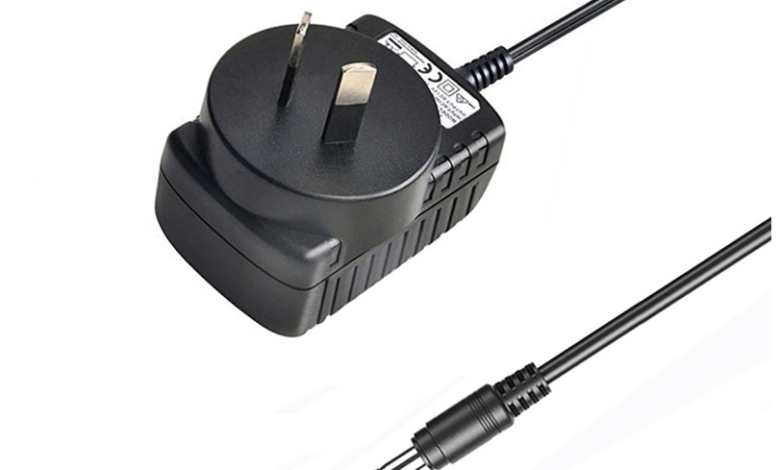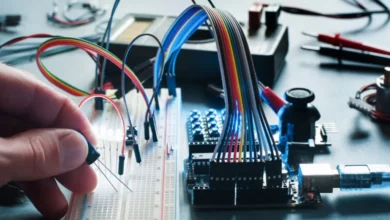Power Adapter Manufacturers and the Move Toward Sustainability

In the race to create smarter, more efficient electronics, the power adapter industry is undergoing a significant transformation. Manufacturers are not only innovating for performance but also for sustainability, ensuring that the devices powering our daily lives are kinder to the planet.
This article takes a closer look at how power adapter manufacturers are embracing sustainability, the challenges they face, and the impact these efforts have on consumers and industries.
The Environmental Impact of Power Adapters
Power adapters, though small, have a substantial environmental footprint. Consider the following factors:
- Production Waste: Manufacturing processes often generate waste materials, including plastics and metals.
- Energy Inefficiency: Older adapters consume excessive energy, contributing to higher carbon emissions.
- End-of-Life Disposal: Many adapters end up in landfills, where their non-biodegradable components persist for decades.
Recognizing these issues, manufacturers are stepping up to revolutionize the way power adapters are designed, produced, and recycled.
Sustainable Practices in Power Adapter Manufacturing
1. Eco-Friendly Materials
One of the first steps toward sustainability is replacing conventional materials with eco-friendly alternatives:
- Recycled Plastics: Manufacturers are turning to recycled plastics for adapter casings.
- Biodegradable Components: Some are experimenting with biodegradable materials to reduce landfill waste.
- Reduced Metal Usage: By optimizing designs, manufacturers can use less metal without compromising quality.
2. Energy Efficiency Standards
Many power adapter manufacturers are now meeting or exceeding international efficiency standards like:
- ENERGY STAR: Adapters with this certification consume less power during use and standby.
- Level VI Standards: Mandated for adapters sold in many regions, these standards ensure minimal energy wastage.
3. Waste Reduction in Manufacturing
Advanced production methods like 3D printing and precision engineering minimize waste during the manufacturing process.
4. End-of-Life Recycling Programs
Some manufacturers have launched programs to collect and recycle old adapters, recovering valuable materials and reducing waste.
Innovations Driving Sustainable Adapters
1. GaN Technology
Gallium Nitride (GaN) adapters are smaller, more efficient, and generate less heat than traditional silicon-based models.
2. Modular Adapters
These adapters feature replaceable parts, extending their lifespan and reducing the need for full replacements.
3. Universal Compatibility
Adapters designed to work with multiple devices reduce the need for separate chargers, cutting down on production and e-waste.
Challenges in Sustainable Manufacturing
Despite significant progress, manufacturers face hurdles in adopting sustainable practices:
1. Cost of Innovation
Eco-friendly materials and advanced manufacturing processes often come at a higher cost, challenging affordability.
2. Consumer Awareness
Many consumers prioritize price over sustainability, slowing the adoption of green technologies.
3. Global Regulations
Adhering to varying environmental regulations across regions adds complexity to production and distribution.
What Consumers Can Do
While manufacturers play a significant role in sustainability, consumers can contribute by:
- Choosing Energy-Efficient Adapters: Look for certifications like ENERGY STAR.
- Recycling Old Adapters: Use manufacturer recycling programs or e-waste facilities.
- Avoiding Counterfeit Products: Counterfeits often lack efficiency and sustainability standards.
Case Study: A Manufacturer’s Green Journey
A prominent manufacturer in the industry (let’s call them EcoAdapt) exemplifies the shift toward sustainability:
- Green Production Facility: Their factories are powered by renewable energy sources.
- Sustainable Packaging: Adapters are shipped in biodegradable packaging.
- Lifetime Recycling Program: Customers can return old adapters for free recycling.
The Future of SustainableAc Dc Power Adapters
The power adapter industry is poised for a greener future, with innovations and initiatives leading the way:
1. Carbon-Neutral Manufacturing
Factories powered entirely by renewable energy will become the norm.
2. Circular Economy Models
Manufacturers will design adapters with end-of-life recycling in mind, creating a closed-loop system.
3. AI-Optimized Efficiency
Artificial intelligence will further enhance the energy efficiency of power adapters, minimizing environmental impact.
4. Consumer Incentives
Expect to see more programs rewarding consumers for choosing sustainable products.
Conclusion: A Collaborative Effort
The shift toward sustainability in power adapter manufacturing is a collaborative effort involving manufacturers, consumers, and policymakers. By adopting eco-friendly practices and embracing innovation, the industry is proving that even small devices can drive significant environmental change.
This transformation not only benefits the planet but also ensures a future where technology and sustainability coexist harmoniously. As consumers, we hold the power to support this change by making informed, environmentally-conscious choices.





